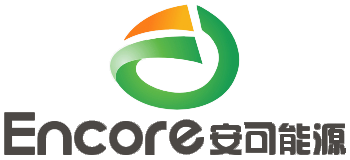- English
- Español
- Português
- русский
- Français
- 日本語
- Deutsch
- tiếng Việt
- Italiano
- Nederlands
- ภาษาไทย
- Polski
- 한국어
- Svenska
- magyar
- Malay
- বাংলা ভাষার
- Dansk
- Suomi
- हिन्दी
- Pilipino
- Türkçe
- Gaeilge
- العربية
- Indonesia
- Norsk
- تمل
- český
- ελληνικά
- український
- Javanese
- فارسی
- தமிழ்
- తెలుగు
- नेपाली
- Burmese
- български
- ລາວ
- Latine
- Қазақша
- Euskal
- Azərbaycan
- Slovenský jazyk
- Македонски
- Lietuvos
- Eesti Keel
- Română
- Slovenski
- मराठी
- Srpski језик
Why did BYD decide to replace lithium iron phosphate battery with ternary battery?
2022-11-30
As is known to all, BYD started from lithium iron phosphate battery and has stuck to this field for a long time. However, a statement recently issued by BYD was a surprise.
The statement said that from next year, all BYD passenger cars will use teradata batteries, and the company will expand a battery factory with 10 Gwh teradata batteries in Qinghai Province next year.
This news is surprising because BYD once boasted that iron phosphate batteries are safe, rich in raw materials and easy to control. At the same time, he expressed great disdain for the three-way battery at that time, saying that the three-way battery had poor safety and had great potential safety hazards.
However, BYD's attitude seems to have changed a lot. The reason may be that the iron phosphate battery really can't be played, and now I think of ternary copolymer battery. Look what you've done. Are you insulting me? But it doesn't matter. Who hasn't made mistakes? BYD's courage to turn losses into profits in time is commendable.
However, with the continuous improvement of policy driven (subsidy) and technology, the safety of ternary batteries will be further improved, and there is still great room for market development.
Anyway, BYD has made this decision. I hope BYD can save face for Chinese people and not be looked down upon by Tesla. Good luck to BYD. The next generation of lithium batteries for electric vehicles and mobile phones will choose all solid state lithium batteries with higher energy density and better safety. The country accelerates the research and development of new materials and all solid state lithium batteries. During the more severe 13th Five Year Plan period, the country is the first to establish the research and development of the national key project of material genome technology, and hopes to accelerate the research and development of all solid state lithium batteries through the new concepts and new technologies of materials, synthesis and testing, and databases (machine learning and intelligent analysis of large data) of genome high-throughput computing The national key project of all solid state battery has established the research and development based on material genome technology, which is jointly undertaken by 11 organizations led by Professor Pan Feng, School of New Materials, Shenzhen Graduate School, Peking University. An important part of the project includes the development of high-performance all solid state lithium batteries and key materials (such as new solid electrolyte) and mechanisms (such as various aspects of solid state battery materials). Traditional inorganic ceramic electrolytes are difficult to be widely used in solid state batteries due to their large interface impedance and poor matching with electrode materials. Therefore, it is of great significance to develop new solid electrolyte with low interface impedance to improve the energy density and electrochemical performance of solid state batteries.
Long Cycle Stability and Cycle Capacity of Solid State Batteries at Different Temperatures
In recent years, Professor Pan Feng's research group has made important progress in the research of new solid electrolytes and high energy density solid state batteries. Lithium containing ionic liquids ([EMI0.8Li0.2] [TFSI]) were loaded into porous metal organic framework (MOF) nanoparticles as guest molecules to prepare novel composite solid electrolyte materials. Among them, lithium ion containing liquid is responsible for lithium ion conduction, while porous metal organic framework materials provide solid carriers and ion transport channels, which prevent the risk of liquid leakage of traditional liquid lithium batteries, and have a certain inhibition on lithium dendrites, so that metal lithium can be directly used as the anode of solid batteries. The new solid electrolyte material not only has a high bulk ion conductivity (0.3mSCM-1), but also has the best interface lithium ion transport performance due to its unique micro interface wetting effect (nano wetting defects), and has a good match with the electrode material particles. Because of the above characteristics, the solid state battery assembled with new solid electrolyte, lithium iron phosphate anode and metal lithium anode can achieve extremely high electrode material load (25Mgcm-2), and show good electrochemical performance in the temperature range of - 20 to 100 ℃.
The statement said that from next year, all BYD passenger cars will use teradata batteries, and the company will expand a battery factory with 10 Gwh teradata batteries in Qinghai Province next year.
This news is surprising because BYD once boasted that iron phosphate batteries are safe, rich in raw materials and easy to control. At the same time, he expressed great disdain for the three-way battery at that time, saying that the three-way battery had poor safety and had great potential safety hazards.
However, BYD's attitude seems to have changed a lot. The reason may be that the iron phosphate battery really can't be played, and now I think of ternary copolymer battery. Look what you've done. Are you insulting me? But it doesn't matter. Who hasn't made mistakes? BYD's courage to turn losses into profits in time is commendable.
The so-called ternary battery refers to the cathode material of nickel cobalt lithium manganic acid or nickel cobalt lithium aluminate, which is characterized by low temperature resistance, high energy density, high charging efficiency and good cycle life. Compared with lithium iron phosphate battery, its average energy density can be increased by 20% - 50%, but its biggest disadvantage is poor safety.
However, with the continuous improvement of policy driven (subsidy) and technology, the safety of ternary batteries will be further improved, and there is still great room for market development.
Anyway, BYD has made this decision. I hope BYD can save face for Chinese people and not be looked down upon by Tesla. Good luck to BYD. The next generation of lithium batteries for electric vehicles and mobile phones will choose all solid state lithium batteries with higher energy density and better safety. The country accelerates the research and development of new materials and all solid state lithium batteries. During the more severe 13th Five Year Plan period, the country is the first to establish the research and development of the national key project of material genome technology, and hopes to accelerate the research and development of all solid state lithium batteries through the new concepts and new technologies of materials, synthesis and testing, and databases (machine learning and intelligent analysis of large data) of genome high-throughput computing The national key project of all solid state battery has established the research and development based on material genome technology, which is jointly undertaken by 11 organizations led by Professor Pan Feng, School of New Materials, Shenzhen Graduate School, Peking University. An important part of the project includes the development of high-performance all solid state lithium batteries and key materials (such as new solid electrolyte) and mechanisms (such as various aspects of solid state battery materials). Traditional inorganic ceramic electrolytes are difficult to be widely used in solid state batteries due to their large interface impedance and poor matching with electrode materials. Therefore, it is of great significance to develop new solid electrolyte with low interface impedance to improve the energy density and electrochemical performance of solid state batteries.
Long Cycle Stability and Cycle Capacity of Solid State Batteries at Different Temperatures
In recent years, Professor Pan Feng's research group has made important progress in the research of new solid electrolytes and high energy density solid state batteries. Lithium containing ionic liquids ([EMI0.8Li0.2] [TFSI]) were loaded into porous metal organic framework (MOF) nanoparticles as guest molecules to prepare novel composite solid electrolyte materials. Among them, lithium ion containing liquid is responsible for lithium ion conduction, while porous metal organic framework materials provide solid carriers and ion transport channels, which prevent the risk of liquid leakage of traditional liquid lithium batteries, and have a certain inhibition on lithium dendrites, so that metal lithium can be directly used as the anode of solid batteries. The new solid electrolyte material not only has a high bulk ion conductivity (0.3mSCM-1), but also has the best interface lithium ion transport performance due to its unique micro interface wetting effect (nano wetting defects), and has a good match with the electrode material particles. Because of the above characteristics, the solid state battery assembled with new solid electrolyte, lithium iron phosphate anode and metal lithium anode can achieve extremely high electrode material load (25Mgcm-2), and show good electrochemical performance in the temperature range of - 20 to 100 ℃.



